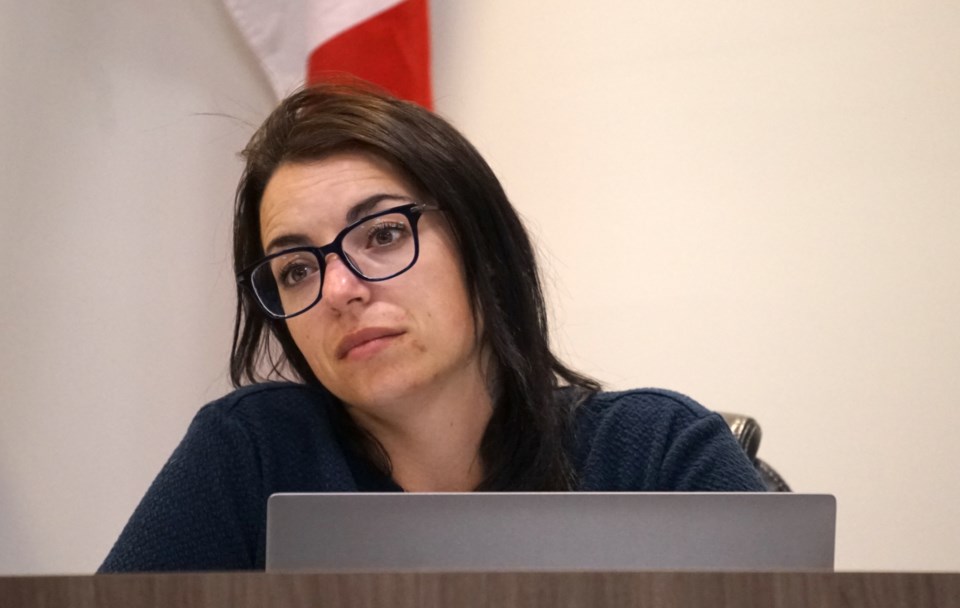BOYLE — The Athabasca Regional Waste Commission (ARWC) asked, and Boyle councillors answered: proposed changes to what transfer sites around the county can and cannot accept could potentially pose problems.
During their June 5 council meeting, village officials reviewed a request for decision prompted by a May 10 letter from the ARWC board of directors seeking feedback on suggested strategies to improve efficiency and cut costs at transfer sites.
“We’re open to support anything that makes sense for the communities,” said Mayor Colin Derko in a June 14 follow-up, stressing the importance of considering how the suggestions will impact ratepayers and residents.
“Say there’s a group of 10 of us in a room … and we’re making a decision to go to someplace (for dinner). We don’t think of the 100 people it affects as much as we think of what we like.”
The new strategies limit the disposal of large furniture and appliances at rural transfer sites, redirect large volumes and dump trailer loads containing organic debris to landfills, and add categories to differentiate everyday waste from items needing special equipment and handling. Grassland and Wandering River sites will be exempt from the policy.
Although the proposed strategies won’t mean many changes for the Boyle site, apart from the re-direction of large organic waste loads already being enforced, the mayor voiced concern about the potential ripple effects created by the changes.
“We’re solving our own problem but we’re creating other problems,” said Derko. “Because people are not going to stop getting rid of that. They’re going to get rid of it somewhere else.”
Related: Athabasca County gives waste commission green light
Potential issues raised by councillors included longer drive times and distances for dump users, incentives to ensure the new rules are followed, and an increase in dumping waste on public or private land.
“Not everybody can get to a larger centre,” said Coun. Shelby Kiteley. “A lot of people don’t have reliable vehicles or gas money, or they’re paying someone to take their garbage already.”
Coun. Pat Ferguson and Derko both expressed concern about users’ willingness to make the drive to Athabasca or Lawrence Lake sites.
“It’s like telling people, ‘We’re having a healthcare crisis right now at our hospital, stop being sick, we can’t handle it right now,’” said Derko.
Coun. Barb Smith noted the ARWC board has discussed offering reduced costs at landfills for services not available at smaller transfer sites as an incentive to not dump for convenience’s sake.
The potential to bring large bins into the community on an annual or bi-annual basis for residents to deposit large items like mattresses, furniture, and household appliances was also noted by both the commission and councillors.
“It would at least give local residents a way to get rid of that stuff once or twice a year,” said CAO Warren Griffin.
Councillors accepted the suggested solutions as information with a vote of 5-0, and Ferguson, council’s representative on the board, will continue discussions during subsequent commission meetings.
In late 2023, the ARWC board reviewed the current use levels of the Perrryvale, Colinton, Whispering Hills, Grassland, Athabasca and Boyle transfer sites, and proposed solutions to the rising volume and range of materials dropped at the sites, and subsequent cost increases.
The potential closure of transfer sites that service rural areas around the county was suggested in a long-term strategy document circulated to local municipal councils for feedback. Councillors for the county opposed the suggestion, prompting the board to consider alternative solutions.
Related: Athabasca Waste Commission opening talks on transfer site closure
Following an April 26 meeting, the AWRC board disseminated three alternative solutions to reduce rising costs at transfer sites, mainly driven by transportation expenses.
“Hauling materials from transfer sites to other final destinations such as a recycling facility or a landfill are the costliest part of the Commission’s operations,” reads the strategy document circulated in October 2023.
“With the landfills not being centrally located and both over 50 kilometres from the main trading centre, costs in comparison to other municipalities that have nearby landfills are incomparable.”
The document also notes an increase in the volume and types of waste seen at transfer stations since 2000. The Colinton, Perryvale, Grassland and Wandering River sites have seen a rise in burnable waste with the decline of burning barrels amidst high fire hazards. Sites near summer villages and lake communities have seen an influx in construction and renovation waste due to property development.
The ARWC board will meet again on June 24 to discuss feedback, suggestions, and concerns expressed by local municipalities.



